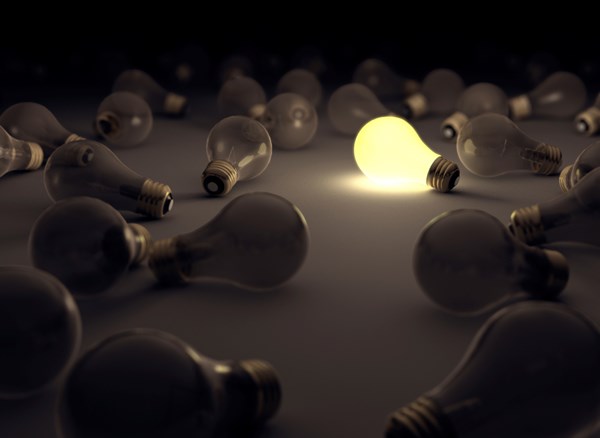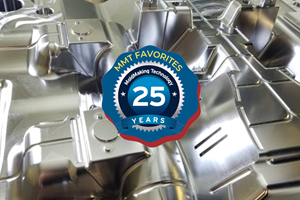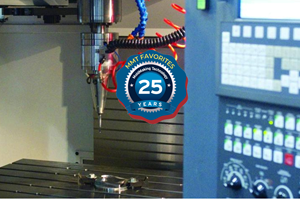The Primary Strengths and Weaknesses of the U.S. Economy
Studying, analyzing, and forecasting the North American moldmaking industry for the past 20 years has taught me a lot. It has deepened my understanding of things such as innovation, initiative and industriousness. But the most important thing I have learned, is the meaning of “competition.”

Studying, analyzing, and forecasting the North American moldmaking industry for the past 20 years has taught me a lot. It has deepened my understanding of things such as innovation, initiative and industriousness. But the most important thing I have learned, is the meaning of “competition.”
In my last blog post I offered a definition of competitive. My thinking is that if we are going to build up America's manufacturing competitiveness, then we need to have a clearly defined target at which to aim. If you have not already read my definition, I encourage you to do so because it provides the starting point for my plan to make the U.S. more competitive.
In this posting, I am going to lay out what I consider to be the primary strengths and weaknesses of the U.S. economy. In our collective efforts to become more competitive in the global marketplace, our manufacturers need to build on our strengths while at the same time shore up the areas in which we are weak.
Under the heading of strengths, the first thing is our strong culture of hard work, innovation and entrepreneurship. Ever since the pilgrims first landed on our shores, Americans have diligently endeavored to make our country better. And moldmakers have represented this strength as well or better than anybody else.
This characteristic has enabled us to build our other strengths such as an incomparable scientific and technical infrastructure. We have developed the world's most advanced rule of law, which affords protections to our freedoms and our property, including our intellectual property. Our vast array of educational resources, from universities to community colleges, is the envy of all of our global competitors. China eagerly sends its students to college in this country, so that they can learn how to compete against us when they graduate.
All of these things are very difficult for our competitors to replicate, but not impossible. And while we should take great pride in our strengths and accomplishments, we must not take them for granted. Other countries are investing vast resources to create these strengths. We must commit to investing vast resources into all of these areas as well.
If we do not, then we run the risk of exacerbating the weaknesses that have recently emerged in our culture. Three of the most insidious weaknesses are: deteriorating worker skills; burdensome tax and regulatory systems; and flawed and myopic policymaking. The only real remedy for these problems is education. Our system of free government and free markets can only work if we have highly educated citizens and consumers.
An ill-informed electorate tends to make poor choices. And when you make poor choices in an extremely competitive area such as the global marketplace, you become less competitive. Consumers, citizens, business leaders and policymakers have all made some poor choices over the years. So have moldmakers. But my sense is that we are not ready to give up just yet. In the coming weeks I will offer some additional thoughts on making the choice to be more competitive.
Related Content
Leading Mold Manufacturers Share Best Practices for Improving Efficiency
Precise Tooling Solutions, X-Cell Tool and Mold, M&M Tool and Mold, Ameritech Die & Mold, and Cavalier Tool & Manufacturing, sit down for a fast-paced Q&A focused on strategies for improving efficiencies across their operations.
Read MoreMMT Chats: Eliminating the Noise to Stay Focused on the Customer
Metro Mold & Design joins me to discuss the value of the 80/20 rule as a business strategy, its talented cross-functional team, the role of automation in mold building and molding, and the continuing impact of COVID-19.
Read MoreHow to Use Scientific Maintenance for More Accurate Mold and Part Troubleshooting
Discover how adopting scientific maintenance approaches helps improve mold lifespan, minimize failures, and optimize production outcomes.
Read MoreMachine Hammer Peening Automates Mold Polishing
A polishing automation solution eliminates hand work, accelerates milling operations and controls surface geometries.
Read MoreRead Next
How to Use Strategic Planning Tools, Data to Manage the Human Side of Business
Q&A with Marion Wells, MMT EAB member and founder of Human Asset Management.
Read MoreAre You a Moldmaker Considering 3D Printing? Consider the 3D Printing Workshop at NPE2024
Presentations will cover 3D printing for mold tooling, material innovation, product development, bridge production and full-scale, high-volume additive manufacturing.
Read MoreReasons to Use Fiber Lasers for Mold Cleaning
Fiber lasers offer a simplicity, speed, control and portability, minimizing mold cleaning risks.
Read More





















